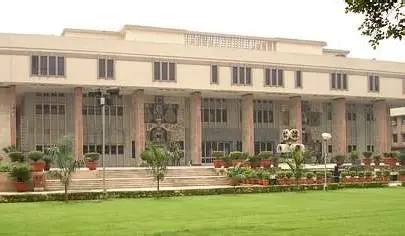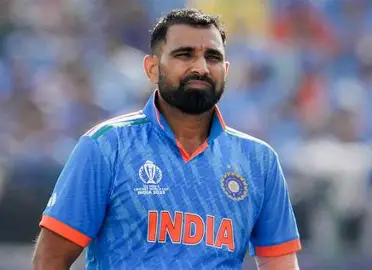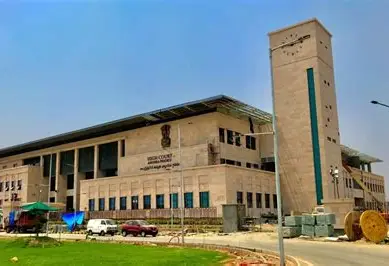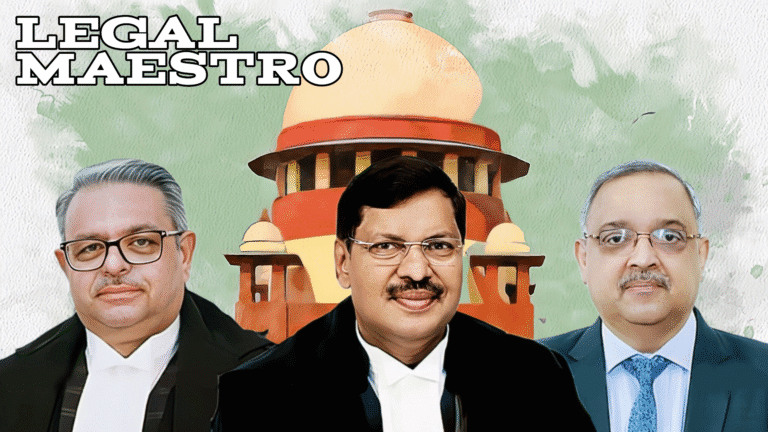
Supreme Court Rejects Lalit Modi's Plea for BCCI to Cover ₹10.65 Cr FEMA Penalty
Understanding Justice: Why Lalit Modi’s Plea Against BCCI Was Directed to Civil Courts
According to this financial regulation, the Enforcement Directorate (ED), a monetary enforcement agency under India’s Ministry of Finance, has recently issued a show cause notice to Lalit Modi, the former chairman of the BCCI and IPL, demanding that he pay a penalty of ₹10.65 crore for his alleged crimes related to managing IPL funds.
First, the big picture decision to permit Rs. All of this big news might be pretty amazing, even for the very high wads of cash and international music legends. The stakes are so much higher.
This judgment has brought clear focus on the fundamental legal principles as to when, and in what way, a High Court has the authority to intervene in such disputes, especially when such disputes are inter-organizational, like that of the BCCI. The Supreme Court suggested that Lalit Modi seek his relief in ordinary civil courts, not through a special sort of litigation known as a “writ petition.”
For More Updates & Regular Notes Join Our Whats App Group (https://chat.whatsapp.com/DkucckgAEJbCtXwXr2yIt0) and Telegram Group ( https://t.me/legalmaestroeducators ) contact@legalmaestros.com.
The Core of the Dispute: A Demand for Indemnification
The case follows Lalit Modi being charged a penalty of ₹10.65 crore by the Enforcement Directorate under FEMA. Purported financial discrepancies during the 2009 IPL season, when South Africa hosted the tournament, were the subject of the fine.
At the time, IPL chairman and vice president of BCCI, Lalit Modi, somewhat controversially claimed to be only doing his job when the problems started. He believed that under Rule 34 of the BCCI Constitution, the Board would safeguard him against such financial liabilities.
For More Updates & Regular Notes Join Our Whats App Group (https://chat.whatsapp.com/DkucckgAEJbCtXwXr2yIt0) and Telegram Group ( https://t.me/legalmaestroeducators )
He claims that this rule meant the BCCI would “indemnify” him, which is a legal term referring to compensating someone for a loss or damage or protecting against such loss or damage. In other words, he wanted BCCI to pay his penalty.
As BCCI was reluctant to pay this, in 2019 Lalit Modi filed a “writ petition” in the Bombay High Court (WP No. 3077 of 2019).
The Bombay High Court’s View: Not a “State” for All Purposes
The primary reason for the outcome in the Bombay High Court decision was a pivotal legal question: whether the BCCI could be classified as a “State” under a writ petition.
In this sense, Article 12, which provides the definition of “State” for the purposes of fundamental rights, affects the interpretation of which entities come under this writ jurisdiction.
Interestingly, the Bombay High Court in so doing also specifically observed that “for the purpose of compensating penalties imposed by ED… BCCI was not performing public functions.” Therefore, a writ could not compel BCCI to pay the fine.
The Supreme Court’s Affirmation: Pursue Civil Remedies
After the Bombay High Court dismissal, Lalit Modi moved the case to the Supreme Court of India via Special Leave Petition (SLP). An SLP provides a means to challenge a decision from any of the courts or tribunals of India.
The case came before a bench of Justices P.S. Narasimha and R. Mahadevan on June 30, 2025. The Supreme Court endorsed the reasoning of the Bombay High Court. It reiterated that generally BCCI is not a “State” as defined in Article 12 of the Constitution and, as a result, does not fall within the writ jurisdiction of the High Court under Article 226 in all respects.
The Court found, “Although BCCI may for some functional purposes related to cricket be a “state,” BCCI “is not a “state” for purposes of financial recoveries and in particular for indemnification.”
Mr. Vikas Mehta, Lalit Modi’s counsel, fairly submitted during the hearing that if the writ petition was not maintainable, it did not preclude Lalit Modi from pursuing other legal remedies. The Supreme Court agreed to allow Lalit Modi to withdraw his Special Leave Petition and granted him the freedom to pursue his “civil remedies.”
The Bigger Picture: Importance of “State” and Civil Law
This case illustrates an important point about Indian law: that is, that a High Court cannot issue a writ petition for “any dispute,” and not just every powerful institution like the BCCI can be compelled to answer directly to a High Court.
It is important what function the organization is performing. If it is entirely a private issue or a matter of commerce, regardless of how public the person or entity brought into the dispute may be, the normal remedy is civil courts.
Civil courts address conflicts among people or entities regarding rights and duties, such as with contracts, property, or monetary claims. These are distinct from writ petitions, which serve the purpose of compelling public authorities to act within the scope of their legal authority.
If, for instance, you were in dispute with a private enterprise over a contract, you would normally go to civil court. Similarly, the courts found Lalit Modi’s demand for indemnification based on a contractual or constitutional rule of the BCCI to be “a civil matter.”
This implies that while there are always legal options for individuals to pursue justice, these legal avenues can only be pursued if the right ones are chosen.
Guiding Lalit Modi to civil remedies prevents the appropriate issues from being litigated in the writ jurisdiction of the high court and allows the high court to remain within the ambit and parameters of its specialized jurisdiction as established under the Constitution. It further contributes to a more definitive categorization of forms of legal redress in the Indian court system.





